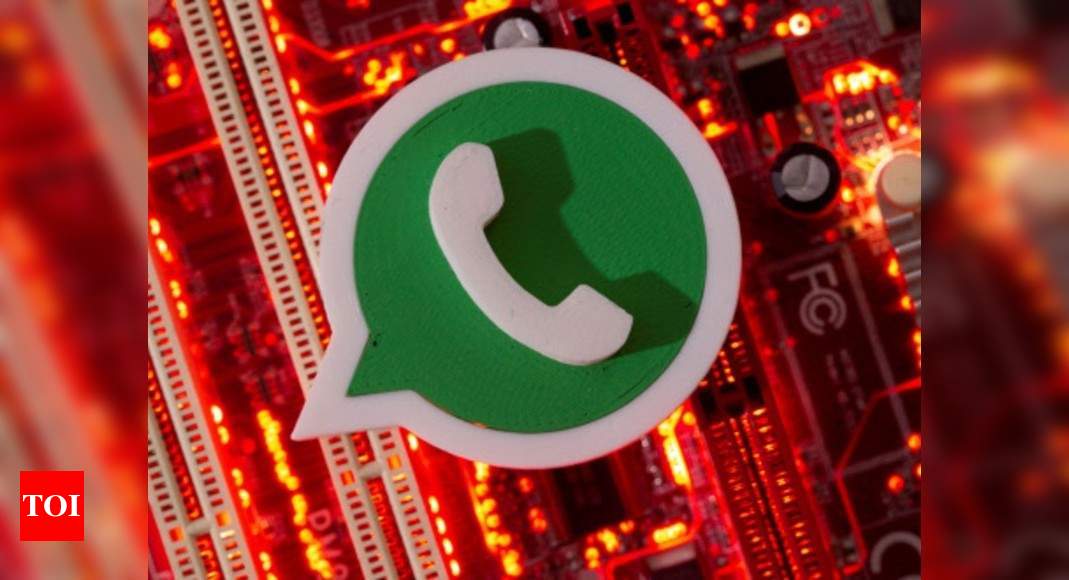NEW DELHI: Emphasizing that right to privacy is not absolute and comes with “reasonable restrictions”, the government on Wednesday termed American instant messenger WhatsApp’s decision to challenge its new IT rules on traceability in the Delhi high court as an “act of defiance”, accusing the Facebook-owned company of engaging in an “unfortunate attempt” to prevent the implementation of new laws governing social-media companies. “Any operations being run in India are subject to the law of the land. WhatsApp’s refusal to comply with the guidelines is a clear act of defiance of a measure whose intent can certainly not be doubted,” the government said in a combative rebuttal to the company’s decision to petition the court against implementation of the new IT rules which, among other things, mandate companies to give out the original source of an unlawful/inflammatory viral message within 72 hours. Read AlsoGoogle and Facebook may comply, but stand of Twitter not clearAmid growing controversy over the new IT rules, the government on Wednesday asked large social media platforms to immediately report their status of compliance with the new mandate. While the stand of Twitter is still not clear, Facebook and Google have indicated to the government that they will beAmidst allegations that rollout of the new laws would impact the privacy of citizens as WhatsApp would have to do away the end-to-end encryption of user chats, IT minister Ravi Shankar Prasad came out with an explanation, saying the government “is committed to ensure the right of privacy to all its citizens, but at the same time it is also the responsibility of the government to maintain law and order and ensure national security.” He further said that “as per all established judicial dictum, no fundamental right, including the Right to Privacy, is absolute and it is subject to reasonable restrictions. The requirements in the intermediary guidelines pertaining to the first originator of information are an example of such a reasonable restriction.” Read AlsoWhatsApp moves high court against new IT rules, terms them unconstitutionalFiling a petition in the Delhi high court on the first day of the implementation of the new IT guidelines and rules which mandate top social media companies (such as WhatsApp, Facebook, Google and Twitter) to identify the source of an unlawful message within 72 hours, the top instant messenger saidIt said that the rule to trace the first originator of information is mandatory for each and every significant social media intermediary, irrespective of their method of operation. It could be done through breaking encryption, or any other technical measure. “Such requirements are only in case when the message is required for prevention, investigation or punishment of very serious offences related to the sovereignty and integrity of India, the security of the State, friendly relations with foreign states, or public order, or of incitement to an offence relating to the above or in relation with rape, sexually explicit material or child sexual abuse material.” The government said that in cases of mob lynching and riots etc, there have been instances of repeated WhatsApp messages that are circulated and recirculated whose content are already in public domain. “Hence, the role of who originated is very important.” Also, it sought to assuage the concerns of companies that this would become a regular practice, rather than an exception, by saying such requests would be rare. “As per the intermediary guidelines, the originator of information can only be traced in a scenario where other remedies have proven to be ineffective, making the same a last resort measure. Moreover, such information can only be sought as per a process sanctioned by law, thereby incorporating sufficient legal safeguards… Therefore, WhatsApp’s attempt to portray the intermediary guidelines of India as contrary to the right to privacy is misguided.” The government also claimed that India is not the only country to enforce such laws, but rather this has been implemented internationally too. “The rules enacted by India… are not rules enacted in isolation but have global precedence… In July 2019, the governments of the UK, the US, Australia, New Zealand and Canada issued a communique, concluding that: ‘tech companies should include mechanisms in the design of their encrypted products and services whereby governments, acting with appropriate legal authority, can gain access to data in a readable and usable format’.”







